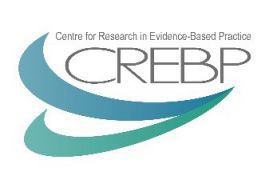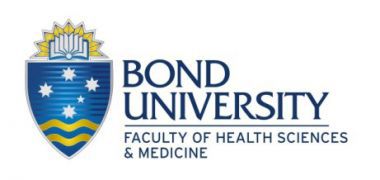PhD Position and Scholarship - [Archived Advertisement]
Bond University (View other jobs from this organisation)
Special Call for Expressions of Interest: Closing 15th September 2017
The Centre for Research in Evidence-Based Practice is currently offering the opportunity to apply for one of four Doctor of Philosophy (PhD) positions within our team. Scholarship funding is contingent on successful scholarship application to Bond University. Applicants will have a degree with a substantial research project (e.g. Research Masters’ degree, Masters’ degree with treatise component, or Bachelor degree with honours). Potential applicants will be invited to co-draft a scholarship application with the relevant supervisors.
1. Improving communication strategies for overdiagnosis.
(Supervisors Dr Rae Thomas, Assoc Prof Rajat Roy and Prof Mark Spence)
How we make decisions about our health includes our responses to cognitive biases and heuristics. We need to understand these constructs when communicating about important health decisions. This program of research may include undertaking a systematic review of the literature to identify different psychological constructs to propose a model that describes individual health decision making. A range of qualitative and quantitative research techniques would be engaged to explore barriers and facilitators in communication of the risk of overdiagnosis in specific conditions.
2.Implementing automation tools for systematic reviews.
(Supervisors Assoc Prof Elaine Beller, Prof Paul Glasziou)
Tools to automate steps in a systematic review are now available, including machine learning software, and tools that eliminate repetitive tasks. We would like to evaluate their real-world usefulness. This PhD would combine areas of information technology, business efficiency and workload measurement, and medical research.
3.Exploring how helping health professionals think about treatment effectiveness
(Supervisor Prof Tammy Hoffmann)
Health professionals often do not have accurate expectations about the benefits and harms of treatments, which means that some patients do not receive accurate information or make informed decisions. One possible explanation is that some clinicians approach treatment effectiveness by thinking about pathophysiological mechanisms (that is, why a treatment should work), rather than trial-based research evidence (that is, does a treatment actually work). This PhD would use a mixture of research methods to explore this idea, with implications for clinical thinking and evidence-based practice.
4.Engaging communities in health policy decision making
(Supervisors Dr Rae Thomas, Dr Anna Mae Scott)
Engaging community members in health policy decisions enhances the legitimacy and acceptability of those decisions to the public. However, methodology in this area is under-developed. This PhD will investigate existing practices for community engagement methods in health policy, develop and test quality frameworks for community engagement, and implement community engagement initiatives. These projects will involve a mix of qualitative and quantitative research designs.
Why study with CREBP?
CREBP is a multidisciplinary, internationally recognised, research team focussed on the processes and implementation of evidence-based practice. CREBP consists of four main groups of researchers: in overdiagnosis and overtreatment, evidence uptake and shared decision making for patients and clinicians, automation of research processes and better research reporting, and antibiotic resistance in primary care. Our mission is to intelligently and efficiently close the gap between best available evidence and current clinical practice.
CREBP does not conduct laboratory or basic science research and applicants from such backgrounds or wanting to do this type of research need not apply.
The successful PhD candidate will have:
- A degree with a substantial research project (e.g. Research Masters’ degree, Masters’ degree with treatise component, or Bachelor degree with honours).
- Excellent analysis and writing skills, demonstrated by publications in peer-reviewed journals
- Exceptional interpersonal communication skills and demonstrated ability to work in teams
- Capacity to work with a range of disciplines
- Evidence of project management and organisation ability, including the ability to fulfil goals and deliver outcomes within a specified time period
- Capacity to seek scholarship funds, with support from supervisors
Your Expression of Interest should include:
- Your CV and copy of academic transcript
- Brief statement of support from an academic referee
- Sample of written work, ideally appropriate for an academic audience (e.g. honours thesis, peer-reviewed journal article, essay written during coursework study or similar)
- "Statement of Purpose" describing your interests, reasons for pursuing this opportunity and longer-term goals, (max. 1-2 pages)
Submit your Expression of Interest via email by 15th September 2017, to:
Centre for Research in Evidence-Based Practice, Bond University,
Attention: Assistant Professor Chrissy Erueti Email: cerueti@bond.edu.au
For questions on specific topics email Dr Rae Thomas (rthomas@bond.edu.au), Associate Professor Elaine Beller (ebeller@bond.edu.au), or Professor Tammy Hoffmann (thoffman@bond.edu.au)
Job Summary
- Closing Date:
- 15 Sep 2017
- Location:
- QLD - Robina
- Work Type:
- Full Time
- Category:
-
Health/Health Sciences
Medical Sciences
Policy/Strategy/Governance
Social Science
Social/Human Services







 Print
Print
